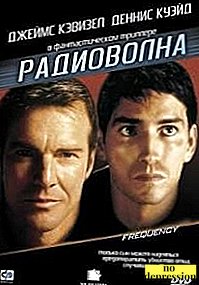This is a continuation of the first part of the article how to develop intelligence. In the second article from the cycle of developing minds, we will talk about such a universal and comprehensive way of developing intelligence as logical and intellectual games. This is chess, backgammon professional poker, etc.

The most striking example is chess, a game that allows you to simultaneously develop logical, analytical, deductive, predictive abilities, abstract thinking, concentration, memory, quick thinking (if I don’t understand what I’m talking about, then read the first part). The one who in the childhood was engaged in chess better and quicker thinks at mature age.
Chess
The game involves a deep analysis of the actions of the enemy, the collection and synthesis of information scattered across the board, planning ahead, and careful thinking through the strategy. The ability to play chess will allow you to raise many intellectual abilities to the desired level. If you want to train, you don’t need to reinvent the wheel, find a good accessible chess tutorial and learn from it. As for practice, if you play on the Internet, this simplifies the search for a partner in the game.
I think there are a lot of sites that allow you to quickly select an opponent that suits you in terms of the game. Well, someone plays in your family and is able to train you (usually these are grandfathers: this sport was very developed in Soviet times), this is even better. No need to think that this boring game, even if you are not very enthusiastic in the beginning and do not see much interest in it, then begin to study it using a textbook.
Take this from the beginning simply as a useful mental exercise that you need to do. From my own experience I know that intellectual games do not bring much pleasure until you start to understand them and think over the moves, think through the strategy, use the power of your mind to beat the opponent, it brings joy to the rivalry. And in the case of a loss, when the opponent has played the sophisticated combination, you learn from him and enjoy the game skillfully played by your opponent. So you just need a little patience and the game will start to bring satisfaction.
Poker - a mathematical and psychological game
I am not strong in chess, but I really want to learn in this game. I play poker much better. Although far from professional, since there is no time to practice, but he is able to beat beginners (taking into account their own and my luck / bad luck) and confidently lead their party. I know that this game has the reputation of a gambling, reckless competition of big bets, where the win depends entirely on the turns of the wheel of fortune. Although in reality it is a game of strict logic, sharp observation, cold calculation and strong nerves. Of course, you can just play in the kitchen, especially without thinking about the moves, betting on each of your moves and often going all-in ... But this poker is completely different.
Of course, if you compare it with chess, then this game may not be so sophisticated and rich in combinations, it is likely that chess players have better parts of the brain than poker players (although you can argue, too), but poker has several absolute advantages, a little later. Nevertheless, these two games contain much in common. This is proved by the fact that many chess players play professional poker, as there you can earn more than in a sport that has already lost its popularity with pieces on the board. They competently use skills that they got in chess sports in poker and achieve good results and big wins.
What are the features of poker?
Poker is a mathematical and psychological game, as well as chess involves the collection and analysis of information and thinking through the strategy and their future moves, implies a deep concentration on the game and greater concentration. Poker develops all the same mental abilities as chess. Poker has several advantages. First, this game is capable, in contrast to conservative and old-fashioned chess, to immediately seize a novice and brighten up leisure in any company because of the element of excitement. It is ridiculous to even think that a company of young people, boys and girls can get together in the evening and concentrate on chess. Secondly, despite the fact that during chess tournaments, players are under psychological pressure, but this cannot even be compared with the level of stress that a player experiences at the poker table, live or on the Internet.
This is due not only to the fact that the rivals are trying to confuse each other, consciously act on the nerves, but there is also more. Although I assure you that success in poker is more dependent on your ability to play, and not at all from luck, but the element of fortune is also present. And a great skill will consist in holding back emotions, when the changeable fortune turns to you the other side (back) and beginners, who only recently learned what poker is, play up your strong hand, with some garbage on their hands with which they do not understand why. the game. You try your luck all the time during the game: wait for a card to come, it can strengthen your card and vice versa make a strong hand weaker, guess what card is in the hands of the opponent. What if he was ahead from the very beginning, and you have already invested a lot of money in the bank and what to do next? Or maybe you're ahead now, but the next card will strengthen it? What need to bet so that he folds? And if he answers it and does not fold, then what will I do?
And here you are, tormented on the one hand by all these doubts, on the other side of the opponent’s reaction, on the third changeable fortune, and on the fourth money (you’ll win or leave nothing), you still have to remember to make an analysis, make informed decisions and not Demonstrate your reaction to the enemy, keeping your face calm and cool. Emotions should not affect your final action. Complicated? Not the word as! This is what sets the possibility of such high professionalism in this game and sets a great differentiation in the ability to play with different players: there are poker players of absolutely different degrees of skill, from the very beginners to world-class professionals who confidently win victory after victory in various tournaments.

Well, I'm all to the fact that poker, in contrast to the ancient game of chess, implies a great degree of self-control, emotions, and the ability to abstract from feelings, namely, the autonomy of the mind, about which I spoke and awareness. I very much doubt that professional poker players can show excitement during meetings, negotiations or lose themselves in stressful situations. These self-control skills are very useful in life. This is in fact an undoubted plus of the ability to play poker, you learn not only some strategic skills and planning moves, but you also secure useful emotional and volitional habits.
You can play both on the Internet and live, both for money and for candy wrappers. But I repeat once again, if you want to not only play but also get some bonuses like intelligence increments and degrees of self-control, then you don’t need to turn poker into roulette and frivolous drunken fun in a smoke-filled kitchen! Read poker textbooks (if someone is interested, ask in the comments - I will answer which books are better to read), materials on the Internet, apply mind and logic and only then can we expect some result, play on science and not on instinct!
I do not want to give harmful advice and take responsibility for inaccurate interpretation of my thoughts. I don’t urge to quit everything and start investing all your poker efforts, as I understand how much this game can carry away. It is difficult to imagine that someone is able to play chess until he is blue, stay awake at night and miss important things because of this. But with regard to poker such a pathological addiction is possible.
Therefore, I implore once more, if you decide to start, approach the game as a mathematical contest, use the theory of probability combinatorics and cold detached analysis, strive for stability and aggregate gain over long distances, and not in a specific, private match. The game should not become an arena for the manifestation of your vanity and the desire to morally suppress those around you: you shouldn’t humiliate anyone at the table, try to teach someone a lesson, knock them out of the fight and direct all your efforts to this.
Many players do this, but they are unlikely to ever achieve anything because they react inadequately to the loss and are controlled by emotions. If you take poker only as a gamble, then it will quickly get bored, although at first it will be fun. Actually, I hope that I have formed in you a sound understanding of my position in this regard.
Poker benefits
Now let's talk about the benefits of poker.
Speaking about me, my poker exercises taught me better:
- To think several moves ahead, to consider several possible alternatives, development options (it helps behind the wheel when you need to quickly lay out on the mental map several different routes that you have not traveled before and choose the best, it is easier to plan something for the future, to simulate a sequence of actions in mind)
- To keep in mind the result of any of those actions that I intend to produce (previously it was not always possible to think about the consequences of each of my actions, which could have caused any thoughtless, ineffectual actions or situations with a bad outcome ... It helps a lot in work and business, including Helps to avoid unnecessary work as immediately thinking about the result and purpose)
- Make decisions based on incomplete information quickly and confidently.
- Control emotions and facial expressions.
- Count in mind
- Analyze information
- Logically reason
I do not urge you to play poker if you want to master some intellectual game, yet mental parameters should develop chess more quickly and efficiently, this is a matter of taste, look, decide for yourself. Maybe you even want to play back backgammon, which by the way is also very good. And it's better to play all these games if time permits.
That's actually all that I wanted to tell you about intellectual games, in the following articles I will continue the conversation about the development of intelligence. I'll tell you why it is useful to read good books, why we need mathematics, how to develop memory and about other ways to improve the qualities of our mind. I will try not to delay with the release of new articles, I still want to tell a lot!



